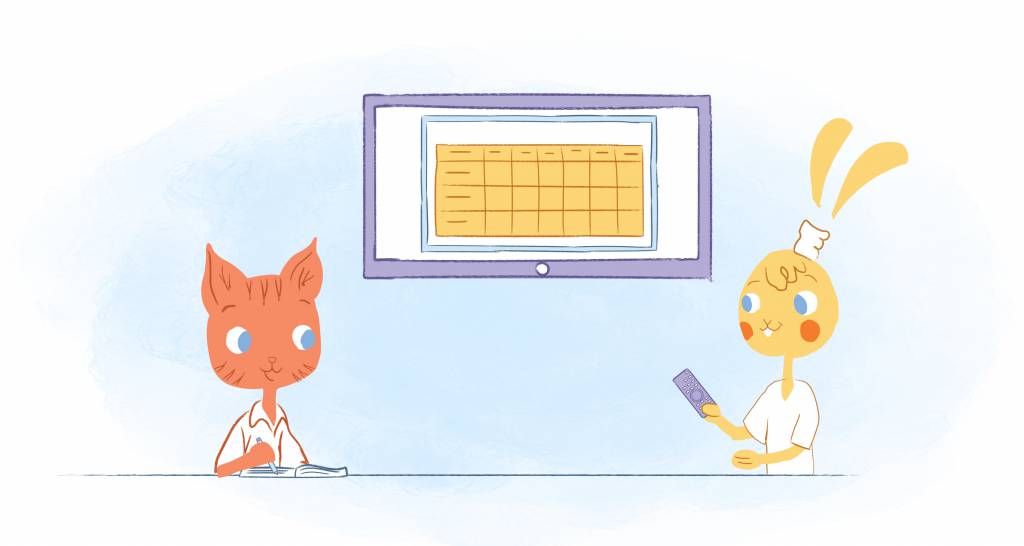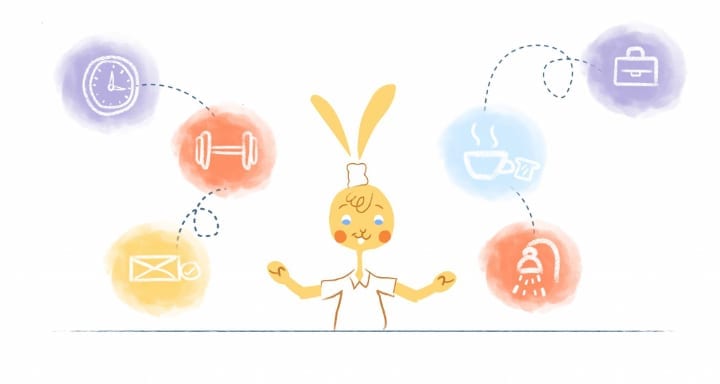

I’ll be honest. When I started out as a business owner I wasn’t much a calendar-person. I might have jotted down important dates, but I wasn’t consistent. I never realized the benefits of sharing your calendar with your team. It’s not just about me anymore, it’s about the whole team.
That drastically changed as my business grew and I had to hire. A calendar wasn’t just a luxury, it became a necessity since it helped me keep tabs on all the doings within my business.
But, I quickly noticed that a personal calendar wasn’t just useful for me. When I created a shared calendar it took my business to the next level because of the following benefits.
Improves communication and efficiency.
The main advantage of sharing your calendar with your team is that it makes planning projects or scheduling meetings a breeze. Even if you happen to be out of the office.
Forgetting an obligation you made with a client isn’t just embarrassing. It could be disastrous for your business. After all, who wants to work with a company that misses deadlines or forgets about meetings?
With a group calendar everyone is on the same page when it comes to arranging meetings and assigning tasks. In fact, if changes are made, the calendar is updated automatically so there’s no confusion or back-and-forth communication.
For example, a group calendar easily coordinates meetings and events with your team since you have an overview of everyone’s schedules. That means that you don’t have to contact each person individually to schedule a meeting.
Even better are apps like the free Calendar that help you with the benefits of sharing your calendar. You select your availability and then share that info with your team via a link. They then pick the best date and time to schedule a meeting or event. It works Google, Outlook, Office 365 or iCloud calendar since integration isn’t a concern.
Simply put, when every team member has their appointments added onto a shared calendar, as a manager or a coworker, you can be assured that every appointment, task, event, and business lunch/dinner are accounted for.
Saves time and boosts your productivity.
Organizing group meetings with your busy employees is both time-consuming and stressful. By using a shared calendar, you eliminate the time spent going back-and-forth with them trying to pick the perfect date and time. Again, using Calendar is like having a personal assistant that does all the scheduling for you.
Since it takes about 16 minutes to refocus your attention on your other work after dabbling your inbox, shared calendars can boost your productivity and let you stay focused on more important matters.
Balances out assignments.
Another benefit of using a shared calendar is that you can balance out assignments across your team. You can view the team calendar so that you’ll have a better idea of each employee’s obligations and availability. This allows them to optimally plan out their tasks and appointments.
You can even revisit past team calendars to determine how your team spent their time, what clients they met with, and which tasks they performed. You can use that info to help you plan future projects.
The benefits of sharing your calendar is ideal for startups.
If you’ve started a business, you already know the long hours and hectic schedules that come with the job. That’s not even taking into account the team meetings and networking events that are a part of the startup culture.
So, it’s not surprising that startups are embracing shared calendars to help them keep those long working days organized and productive. Some have even discovered that it fits perfectly with their work culture.
Picking the right calendar to share.
With the benefits listed above, you can be certain that a shared calendar will seamlessly mesh with your company’s culture. More importantly, a shared calendar will eventually become an essential assist for your company.
As such, you should pick the right calendar. This, of course, can be based on factors like your specific needs, how many people can share the calendar, and cost.
The major players, such as Google Calendar and Microsoft Outlook, are both tried and true options. In fact, they make sharing calendars so easy and efficient that you have to think that they were designed especially to be shared.
If those don’t work out for you, give apps like UpTo, Wiggio, or Teamup a try.











John Rampton
John’s goal in life is to make people’s lives much more productive. Upping productivity allows us to spend more time doing the things we enjoy most. John was recently recognized by Entrepreneur Magazine as being one of the top marketers in the World. John is co-founder and CEO of Calendar.